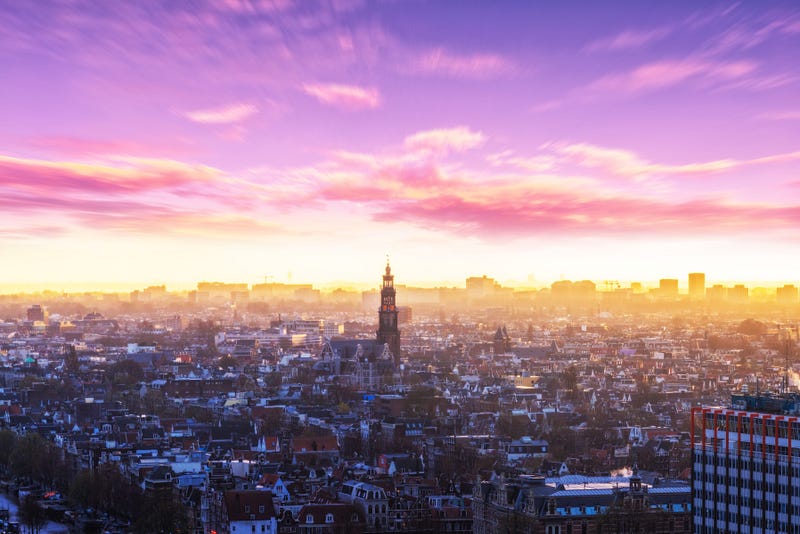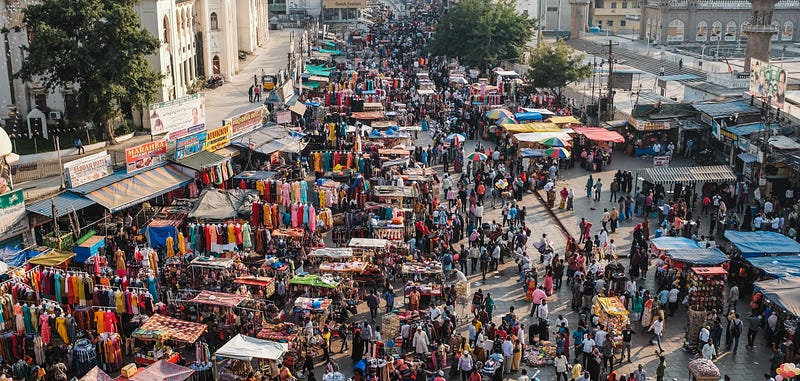A Discussion of Bourgeois Equality Chapter 9, “The Great International Divergence Can Be Overcome”
McCloskey wraps up part 1 with this chapter asking a great question that has surely popped in your head if you’ve been reading these chapter reviews.
But what about the poor right now in the rest of the world? Have you no pity? (p. 73)
She has addressed in a previous chapter how many people have climbed out of a subsistence living in the past couple of hundred years.
And she has explained why income inequality is not the problem to address, but instead the goal should be helping those who are in relative and absolute poverty.
Now she is addressing this chapter to those still in poverty. Why are they still suffering if the Great Enrichment is all that?
We must find effective ways to help them lift themselves up. In our desire to help the poor, we bleeding-heart libertarians stand in solidarity with our social-democratic friends — if not usually agreeing with them on exactly which policies have actually helped the poor. (p. 73)
That is the key — helping those who are currently poor without putting in policies that will undermine the process of the Great Enrichment, because that ultimately would hurt us all. She acknowledges though,
A bottom billion out of seven (billion) is a scandal. Let’s fix it. But let’s actually help the billion, not merely indulge our indignation and our conviction of ethical superiority by supporting policies that in fact make them worse off. (p. 74)
Paul Collier wrote a book, now more than 10 years old, called The Bottom Billion that I used to used in one of my classes. The title is from the fact that we had a billion people in global poverty and he was examining the various traps countries can find themselves in, as well as possible solutions.
From that book, McCloskey gave a dramatic statistic — since 1976, global poverty has seriously declined.
…the world faced a bottom four billion out of total human population of merely five, with no prospects. The well-intentioned policies of job protection and import substitution and state ownership of the means of production had kept the poor very poor indeed. (p. 74)
That is, less than 50 years ago, 80% of the world could be described as poor. In that time period we saw the rise of globalization and neoliberal policies, increasingly adopted by countries around the world.
This is not to say that globalization and neoliberal policies are perfect, but to the extent they have helped countries grow it is due to their alignment with the policies that support the economic growth that allowed people around the world to join the Great Enrichment.
That is, they are aligned with the adoption of the “Bourgeois Deal”, giving liberty and dignity to the common people allowing them the freedom to better themselves. (p. 21)
The Great Divergence is becoming the Great Convergence
Prior to the Great Enrichment, McCloskey has explained that people lived at a subsistence level of $3 per day that they never escaped for long.
But in this chapter she addresses that in fact China was years ahead of the Western World prior to the 1700s in inventions like locks on canals, anesthesia and other scientific advancements.
Then after 1700 and especially after 1800 the West caught up to Chinese best practices, streaking ahead in betterment, and the Great Divergence commenced. (p. 78)
That is, the normal situation globally for centuries was to be poor. When some countries adopted capitalism, which gave dignity to the bourgeois to better themselves, the Great Enrichment created the world we know today of rich and poor countries.
As McCloskey notes, “A Great Convergence is upon us.”
At a 7 percent rate of growth in per-person income — a rate available if people in now wretchedly poor countries will adopt liberty and dignity, such as the economic liberty to open a new convenience store or the social dignity accorded engineers who invent a new digital camera — the Divergence could be over in a couple of generations. (p. 78)
Hong Kong is one example she gives that rose from poverty levels in 1948 to a higher income per person than the United States today. And India and China have both seen growth accelerate as they have turned to policies that allow the bourgeois to pursue betterment. This is how we have gone from 4 billion out of 5 billion being poor to less than 1 billion out of 7 billion.
Conclusion
McCloskey wants us to understand that the Great Convergence that has occurred needs to be nurtured and spread around to those countries that have not participated in the Great Enrichment.
That requires us to understand that it is economic liberty and dignity for the common man that will get us there, not policies of redistribution and planning that could thwart economic growth.
Much of the data has been at the country level so she turns to the work of two economists, Xavier Sala-i-Martin and Maxim Pinkovsky who studied “individual distribution of income…person-by-person as against nation-by-nation.” (p. 79)
She quotes their findings,
The percentage of the world population living on less than $1 a day (in purchasing power parity adjusted 2000 US dollars) went from 26.8% in 1970 to 5.4% in 2006. (p. 79)
That is a 75% drop in absolute poverty.
The Great Enrichment has worked for billions. We need to encourage the remaining poor countries to follow the path of the Great Convergence to lift those left behind out of absolute poverty.
Reference: McCloskey, Deirdre Nansen, 2016. “The Great International Divergence Can Be Overcome,” Chapter 9 of Bourgeois Equality, The University of Chicago Press.




